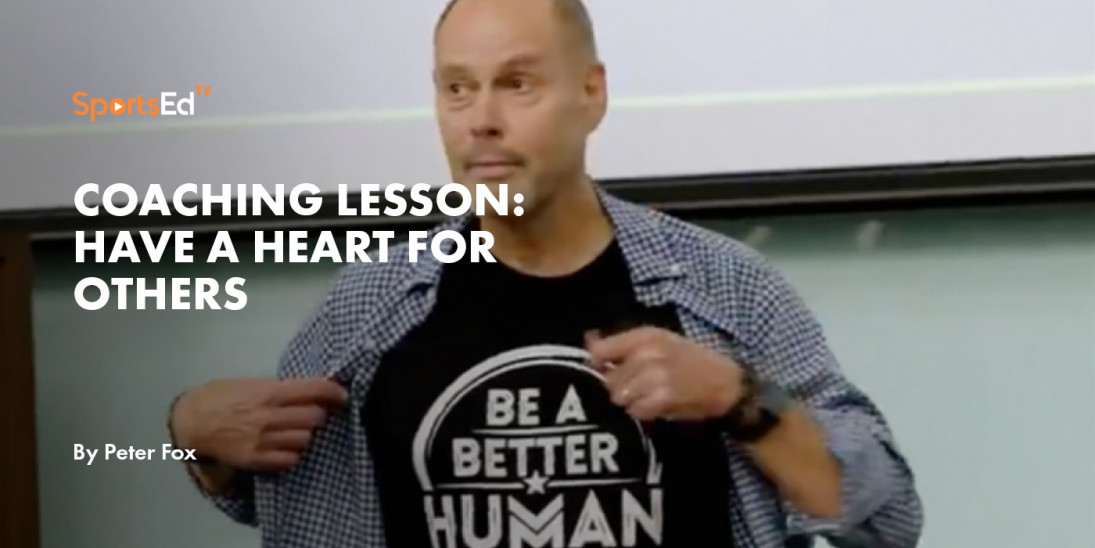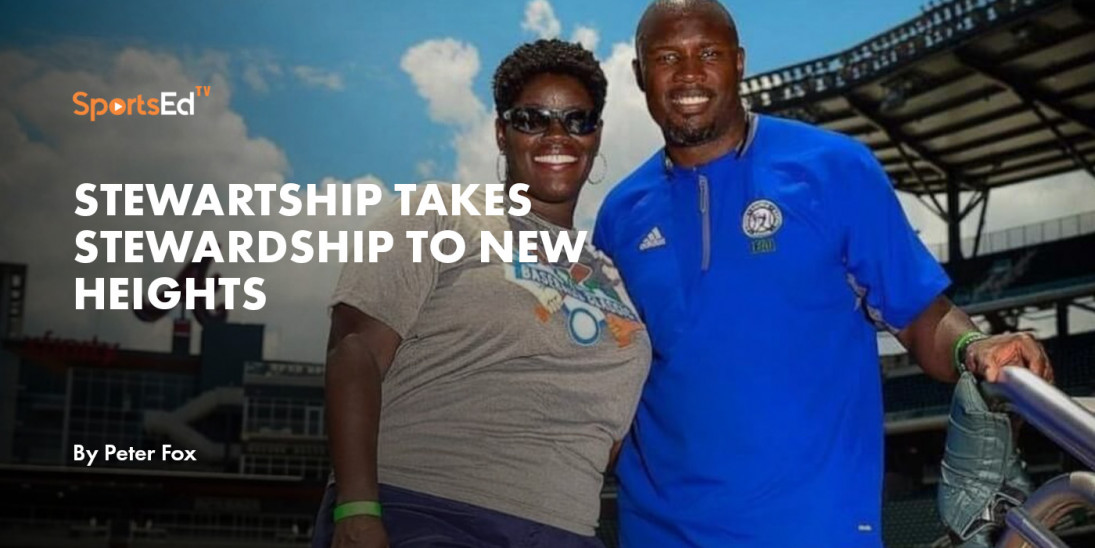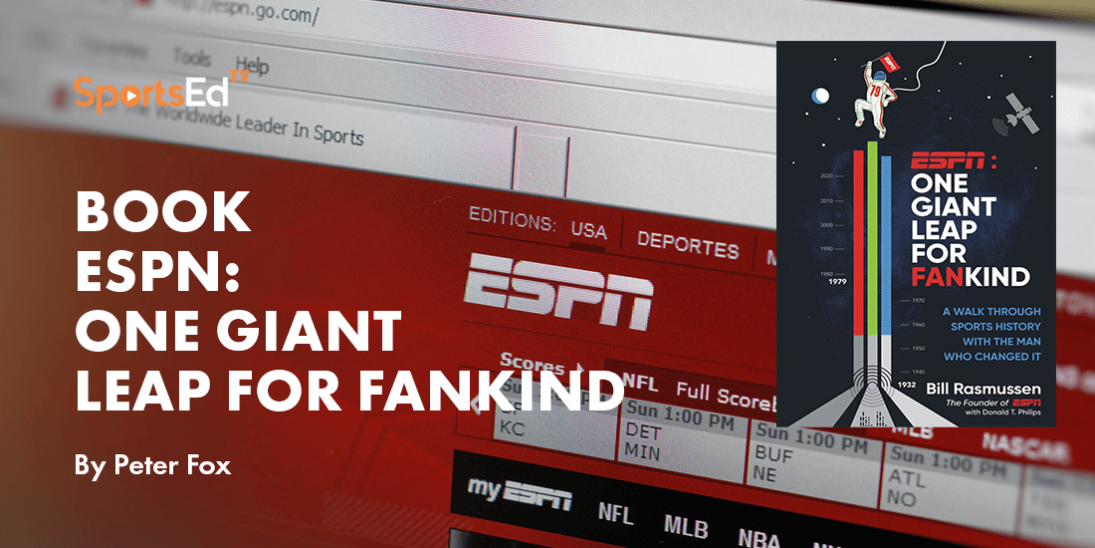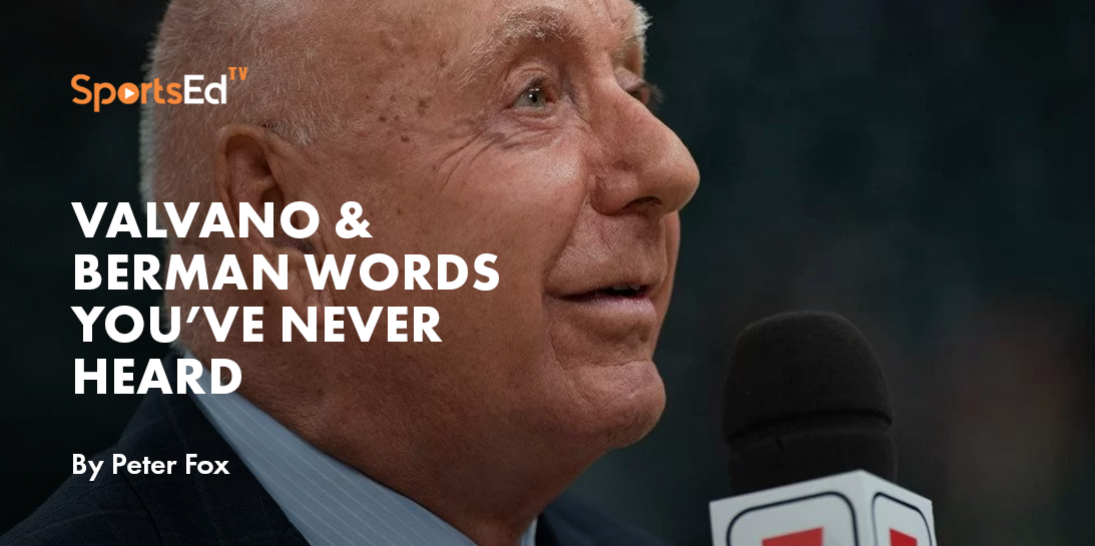Learn To Win
Welcome and thanks for visiting...

SportsEdTV Talks to HeartMath Executive
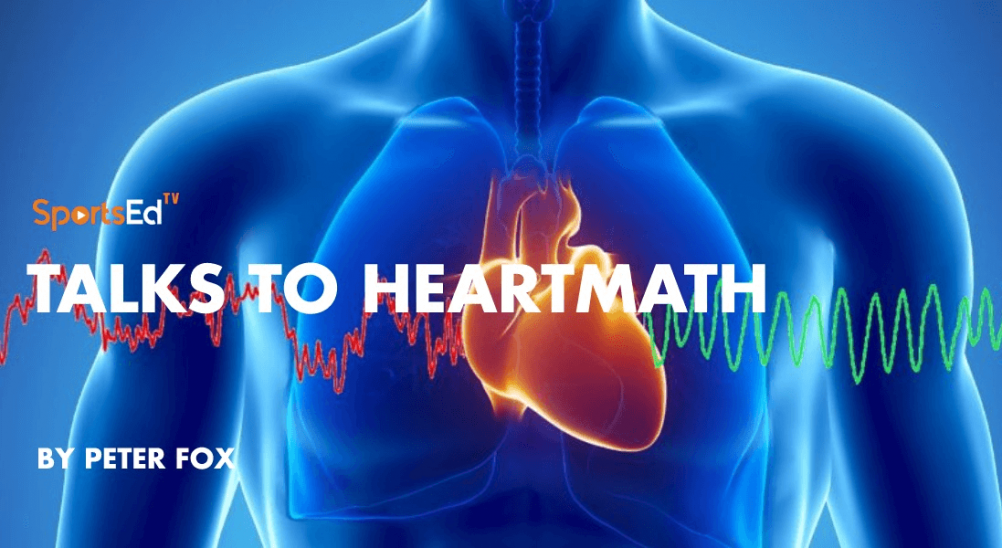
Below is a conversation between SportsEdTV and HeartMath executive, highlighting the adaptation of HeartMath techniques and technology into SportsEdTV’s Learn to Win program.
Deborah Rozman is president and co-CEO of Quantum Intech Inc., the HeartMath technology company. Dr. Rozman serves on the HeartMath Institute’s Global Coherence Initiative Steering Committee and is a key spokesperson for the HeartMath System, giving keynote addresses and media interviews on HeartMath research and applications.
Peter Fox is SportsEdTV’s Senior Content Editor and longtime contributor to HeartMath’s sports applications. He leads SportsEdTV’s Learn to Win adaptation to sports of HeartMath’s peak performance techniques and technology
The recorded conversation has been edited for clarity.
Deborah Rozman
Welcome, everyone, to our Add Heart Calls inspiring forward movement and heart-powered intention. This is Deborah Rozman, your host. I’ve invited a dear friend who I've known for many years to be my guest, Peter Fox, who is now the senior content editor for SportsEdTV, which is educating people from coaches and athletes to ordinary folks like us.
And Peter was one of the founding executive producers of ESPN. So he has a long background in this whole arena. And he's a certified HeartMath coach and produced programs for Golf Digest and Natural Golf Corporation and was one of our advisors on our book many years ago we wrote called Managing Emotions Golf's Next Frontier, which is any sports next frontier. So, Peter, welcome.
Peter Fox
Well, thank you, Deb. It's always fun to work with you. There's always a reward at the end of that.
DR
Yes, I find that too, a reward just in doing it and working together. So let me ask you, Peter, you have trained so many people, from beginners to professional athletes, in using heart-focused breathing, using Quick Coherence, shifting to the heart, adding heart energy to their efforts. Why did you do that? What did you discover was important about that?
PF
Well, I've written about it a couple of times. I guess it's because it's true. We have a mutual friend, Ron Cruikshank, who one day long before you and I met, said to me, “hey, Peter, suppose I told you I could get you into the zone.” And I looked at him and sassed him right back. I said, “Get in line, here are about 50 shrinks who want to do the same thing.” And Ron said, “suppose I could prove it?” And I said, “Come to the front of the line.” And he introduced me to HeartMath, brought me out. I met you. I met Doc. I met the crew. And it's been a long story ever since. But that's how I got started. It was truly the science of HeartMath that took…you know, I'm a newspaperman at heart, which is kind of being born to be a skeptic. And so the science is what reeled me in. And then, of course, the wonderful feelings that were a result of working the HeartMath program and the technology and the science just changed my life.
DR
Hmm, I remember a story you told me way back, as a golfer, related to using the HeartMath technique for the Yips. I guess that's like nervousness. Can you say what that is and what the technique was and how it works?
PF
Well, it was sure that the yips are... first of all, they're not unique to golfers, but they're an uncontrollable fear of an outcome where your muscles begin to twitch or you or you make a bad decision. I've learned over time that it's called cortical inhibition.
But, you know, a lot of people yip. In business moguls yip and they blow the deal. And young lovers, first-time kissers yip, and they kiss a nose. Nerves get in the way. And, of course, Quick Coherence, and all of the wonderful calming things that HeartMath teaches us to do alleviates a lot of that, especially in the moment. And that is the key with HeartMath.
Me as an athlete, I'm able to do it and control my emotions while I play. And that is where I convince a lot of my hard playing--I want to call them athletes. I was going to use jocks—but, it's a family program, I guess.
DR
Well, you know, everybody from children and schools that are using heart-focused, breathing, Quick Coherence in their sports teams to professional athletes, I mean, it's just like you talked about the science, the idea whether it's a HeartMath technique or something else, getting your heart-brain nervous system synchronized is the key to finding flow or entering that first level of the zone or right in the moment, shifting out of that worry or anger, frustration and finding the groove so that this activity becomes much more fun.
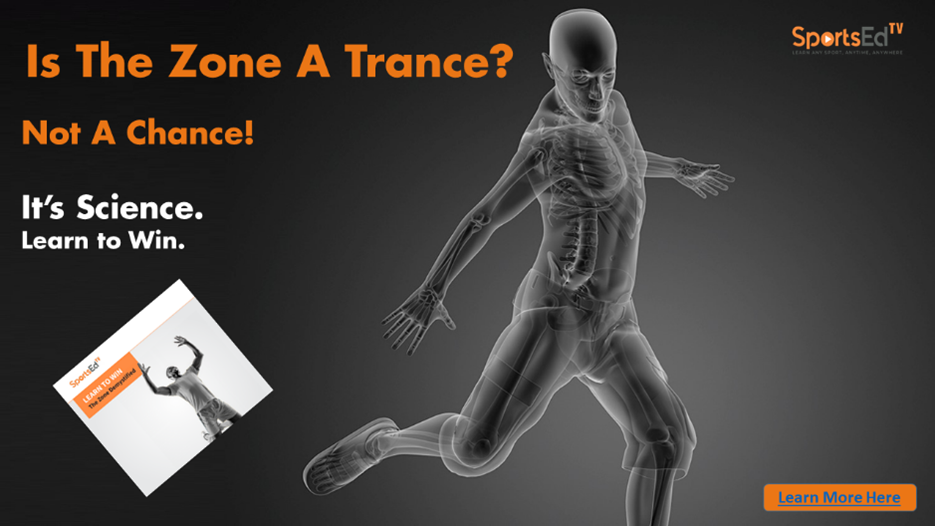
I know for myself, I learned a number of years ago because I when I don't have time to go outside and bike or do another exercise. I use my elliptical and I find that I use to use the elliptical, even if it was for 10, 15 minutes, I used to just have frustration and I recall a challenge I had at work or and then a way to get worked up. I might get frustrated more or even more upset and I realized, what am I doing as I'm exercising? I am actually by my thoughts and emotions, imprinting, whatever that is on myself and my body. And it was like a wake-up call. Wait a minute. Let me do my heart lock-in and just do heart-focused breathing, simple focus in the heart, breathe through the heart and activate some appreciation for nature or somebody and do that while I'm on the elliptical.
DR
And I tell you, it made such a huge difference both in my enjoyment of what could be boring after a while on the elliptical and a lot of us watch TV or watch the news or do something to not be so bored with, you know, exercise equipment.
But it did more than that. It lifted my spirits and perceptions because as I was breathing and exercising and knowing I was imprinting appreciation or love or care or compassion for somebody in my cells or radiating it out, the exercise amplified my heart-focused intention and what we call the heart-powered intention.
And at another level of power to the theme of At Heart calls. And that was like an epiphany for me, that that is something that any of us can do, even if we're walking out walking the dog. You know, that can add a whole other dimension of physical, mental and emotional reward to exercise or play, because it's so easy when you're playing, you know, tennis or ping pong or soccer to get frustrated at your opponent or to and again, there's nothing wrong with that.
You want to put your excitement into it. But coming back to the center, shifting back to the heart, managing your emotions in the moment, you do better. So what maybe you could comment on that, how that's improved people's sports scores or fulfillment in the sport?
PF
Well, you know, Deb, as you were saying that I've been a walker all of my life and I still am. It's it started when I was a preteen. I was a paperboy. And I would in the morning at the five-thirty, I'd put a mile and a half on my feet and by the end of the day, it was probably three or four miles. And then I go to sports practice and things like that.
But that has continued into my golf career and one foot in front of the other. It's become almost meditative for me. The way that I can combine the appreciation that's in my heart, whether I'm walking through nature or walking on the golf course, and appreciating this wonderful grass that I didn't have to mow. It's just an acquired skill that you taught me to appreciate. Before I had the appreciation, but I didn't identify what it was. And as soon as I did and I began to apply those skills in the moment, as I say it, it became not only part of my daily life, but part of my hourly routine in many ways.
If you sit in front of a computer like this writer does a good part of the day, there's a lot of inspiration that needs to come out of the fingertips and it only begins in the heart for me if I'm in the right space and in the right frame of mind and the words flow easily. If I'm struggling, boy, you want to talk about writer's block? So I use our techniques so frequently. It's more than just play for me, although it certainly applies to play.
DR
And writer’s yips? Yes, I like that. If people use it, I mean, obviously we teach heart-based techniques in every aspect of life, you know, parenting, writing, being creative, meetings, working with others, and I've had so many guests on this program from corporate executives to last month, it was a nurse leader at a hospital.
How they apply it in the workday at home everywhere, because it's our natural state of being. Adding heart, which means having love or appreciation or care, which reboots our system, realigns it in coherence with the heart-brain nervous system gives us access to quicker reaction times, which is so important in sports or exercise, but also to our frontal lobes where we have compassion or the ability to understand another empathy.
It activates or higher brain potentials. And I know that every athlete's looking for the edge, but that's the edge, that's intuitive, that's mental, that's creative as well as physical, and that's why it is so important.
I so appreciate what you're doing now of integrating this into your work with coaches who coach so many different aspects of sports and your passion now to bring this to the world and more people before we ask you to give us some tips that we can all use to get out and play or get out and exercise. Tell me a little bit more. What's your passion now, Peter, with all that you've learned in your many years of living and serving?
PF
Well, you know that sports are an important part of my life, which is not to say the only part of my life, but certainly, as I'm in the afternoon side of it, it's pretty significant. And, significantly, I get an opportunity to reflect on how it's affected me and just recently I've begun to outline-- I don't know whether it's going to end up being a white paper or a blog or what, I don't know what form or a book--but it's built around the concept of why people love sports so passionately.
And what is it about sports that transcend religion, transcends race, and transcends politics? I think of Nelson Mandela and how he used rugby to battle apartheid, I think, of Jesse Owens competing in Hitler's Olympics and I think of all of how those wonderful reasons for love and appreciation for sport have affected society. And so that's my passion.
As I said, it's a term, but it's going to manifest itself in something written. And it'll probably take me down several paths that will reveal a little bit about myself and other folks as well. So to answer your question, that's it.
DR
Well, I think what you said reveals about yourself, because when we play when we have fun and when we exercise or do sports of any kind we do learn something about ourselves unless we're competing against someone else, and even then afterward you learn something about yourself.
It creates a certain reflection. And I feel that's for me when I'm biking or hiking in nature, of course, as a whole, another element or even using exercise equipment, there's just a certain type of movement meditation involved and all that, that if you're in your heart, you can get a lot of intuitive insight about other aspects of your life.
That's why people say, if you have a problem, take a walk, take a hike. Go out and do something physical because that can help you gain more insight into your next steps in life. And so I think that's why this is important now is where hopefully emerging from this pandemic and get some regeneration that we also get more than mind heart emotions, body connection and get more clarity on some of our next steps.
Do you have any particular tip or advice you give somebody who, you know, is just an ordinary person, not totally into sports, but into playing tennis or biking or taking walks as you do? What would you suggest they do to add more heart to their play?
PF
For me, it's getting outdoors. This pandemic and being isolated, mostly indoors-- even where I live in a wonderfully temperate climate, it was hard to be out. But the wonders of nature stir something in my heart that the fresh air helps me breathe better, which helps me appreciate more. Just get up and get out. That's my tip.
DR
Yeah, get up and get out. I like that. Peter, any last words for our audience?
PF
I think the athletes in our audience might enjoy how we've adapted to managing emotions. We call it Learn to Win at SportsEdTV , and it embraces all of the science.
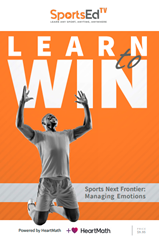
But for the non-athletes, just help Deb and Doc and all of the wonderful folks at HeartMath earn the Nobel Prize that I believe someday they're going to earn.
DR
So that's kind of you and they can get that newly revised booklet at SportsEdTV?
PF
Yes, learn-to-win.sportsedtv.com
DR
Well, thank you so much, Peter, and thank you, everyone. Take care.

